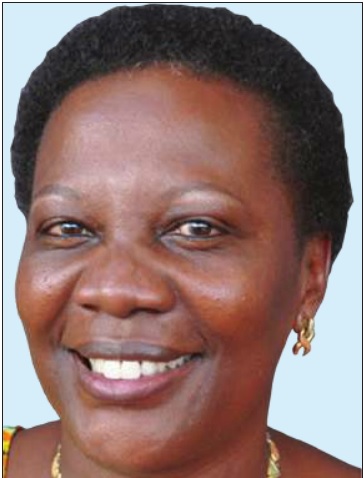
Sarah Mangeni – probably in her mid-20s – is one of the gold dealers. She has been buying gold from the miners since 2014. She says the Indian gold buyers in Kampala prefer Mubende gold because of its high percentage of purity. Mangeni is among 250 representatives of gold buyers in Kitumbi who comb through the makeshift huts buying any piece of gold they can lay their hands on every day.
Government role
Going by what one observes at camps like Saigon, the government appears to be nowhere. For starters, even when gold mining is clearly big business, the government insists artisanal mining is an “illegal business” and it remains a clandestine undertaking. It is hard to find credible data on gold mining in the country and as a result the government keeps losing revenue worth billions of shillings.
In a 2013 report, the Directorate of Geological Survey and Mines (DGSM) said Uganda produced 4.3kg and 5.3kg in 2012 and 2013 respectively. But the same report said Uganda exported 164kg of gold in 2013, with 161kg of it imported for re-export, mostly from South Sudan. However, according to Bank of Uganda (BoU), Uganda did not import anything from South Sudan in 2013 and that the country exported 494kg of gold that year, above what DGSM reported. Officials at the DGSM say it is not easy to track and get someone with smuggled gold. Observers of Uganda’s minerals sector say illegal mining is the principal factor that explains less tax revenue from high-value minerals like gold. But DGSM officials suggest that artisanal and small scale gold mining activities may have increased as much as 20-40% since 2008. This has recently increased the attention of the government, mainly as a result of the massive losses in royalties and revenues due to informality and smuggling. While linkages with gold smuggled from neighbouring DR Congo have often been cited, a substantial proportion of exported gold seems to be derived from in-country artisanal and small-scale gold mining. Kibuuka, the Mubende LC V chairman, says Mubende District does not get any royalties as it should, largely because the Ministry of Energy and Mineral Development does not have the capacity to assess how much gold has been mined, who has bought what, in what quantities and where or to whom he or she intends to sell it.
Kibuuka told The Independent that if Uganda’s gold mining industry were to be regulated, the district would be able to cash much more than what they currently earn in royalties. “It was by luck that gold was found in Mubende but we have not benefitted as a district and the central government,” Kibuuka says.
Mubende’s budget for the 2016/17 financial year is about Shs 34 billion and most of the funding will come from the central government and development partners. There is very little or nothing from the lucrative gold mining. “All the district gets is revenue they collect as market dues from the retailers who have set up shops in these mining camps,” he says. “There is no doubt that the gold business is very lucrative, otherwise, you wouldn’t be seeing thousands of people involved in the sector.” Yet, the only revenue they are getting is about Shs 2m per month out of the market dues collected every day. Observers of the sector say Mubende is not the only district that has seen a frantic rise in artisanal and small scale gold mining in the country.
Other gold-rich areas include, Karamoja in northeastern Uganda, Buhweju and Ibanda in the West, and Namayingo and Busia in eastern Uganda. Kibirige says it is laughable that Ugandan laws hardly recognise artisanal mining when it is estimated that the number of Ugandans directly involved in artisanal and small scale mining has doubled in the last three years to an estimated 400,000 in 2015 with another 1.5 million people indirectly benefitting from artisanal and small scale mining activities. He says it does not help for the government to keep calling artisan gold miners “illegal.” He says the lack of government supervision affects everyone. “When we work illegally, we sell our gold illegally and the government also ends up getting cheated. Working illegally has affected us so much because we end up selling our cheaply,” adds Ssenkusu who besides working for the government, also dabbles in artisanal gold mining.
Kibirige insists the government has a simple remedy for all this, by issuing location licences to artisanal and small scale mines, monitor what they produce and get royalties. “It is a business that we are not doing for one day but for years. We are here to stay and the government must understand that.” Don Bwesigye Binyina, the executive director of the African Centre for Energy and Mineral Governance (ACEMP), says there is need for the government to shift its attitude towards artisan and small scale miners.
****
editor@independent.co.ug
 The Independent Uganda: You get the Truth we Pay the Price
The Independent Uganda: You get the Truth we Pay the Price


